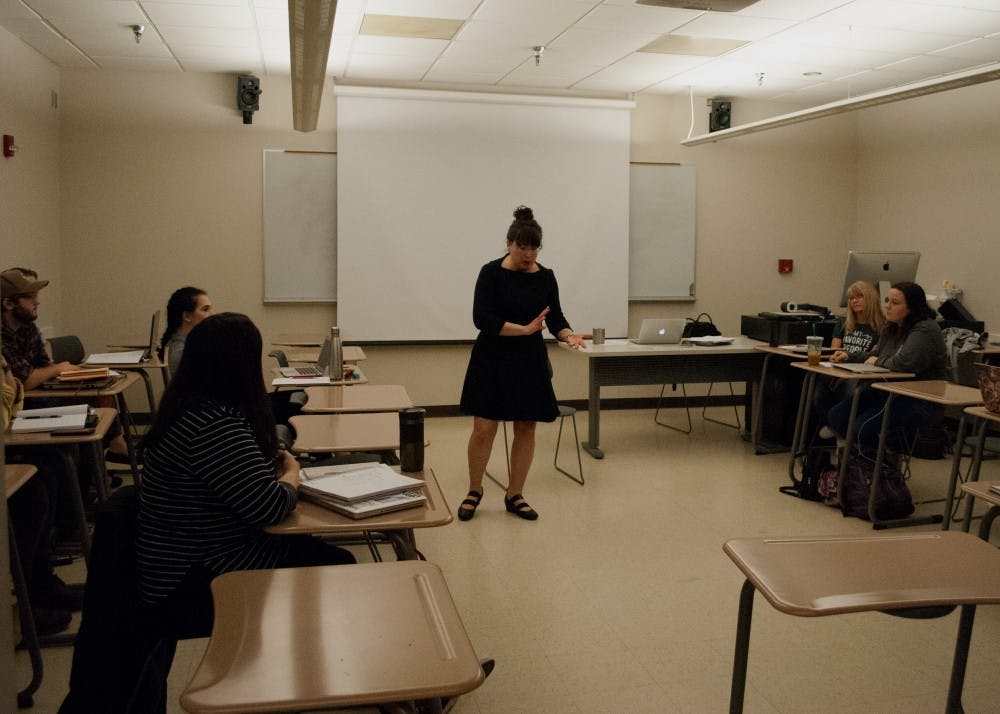Eileen Porzuczek, a junior creative writing major, met a Muncie local whose grandmother worked at a department store downtown during the years of segregation. At the time, the woman’s grandmother was the only clerk who would serve African-American customers.
“All the other workers there would just, like, not look at them or they wouldn’t even check them out at the cash register,” Porzuczek said.
A story like this would likely go untold were it not for Porzuczek’s work through the English department’s immersive learning class "Creative Writing in the Community."
This story is just one of many that the class of 13 students has found through reaching out and pairing with a community member.
Darolyn "Lyn" Jones, the professor for this year’s immersive class, focused her students’ interactions on a specific process: to find a story, write a memoir and then publish the class’ work in a single book.
This year, Jones pushed students to seek stories that would fall under the hashtag #KeepMuncieWeird. However, the stories the students gather are centered around the weirdest or strangest things that have happened to community members.
Right now, the working title of the book is “#KeepMuncieWeird and Wonderful.”
“I was strategic about this,” Jones said. “We have a new president. He has made it very clear that he is going to be very involved with this Muncie community. And I have told the kids, this book is an opportunity to really celebrate, and we want to lift this community up.”
To do so, Jones said she is pushing students in the class outside of their comfort zones.
The process for students to find stories is not an easy one, Jones said. Students must find the story on their own, write it, work to get it approved by their community partner and then begin the editing and publishing process.
Porzuczek said she spends about seven to ten hours per week doing work for the class, but knows that time is necessary to write an effective memoir.
“We really want to do their memoirs in a way they would appreciate, because they are their stories,” Porzuczek said.
At the same time students are working with their community partners, they are also studying memoir writing in class and producing 1,000 words per week of their own personal memoirs.
“I’m all about piling it on and about rigor, because you can’t just write someone else’s story without writing about yours at the same time,” Jones said.
Because of her work in the community, Porzuczek said her view of Muncie and the people who live here has shifted.
“Whether they explicitly say it or not, you can tell in the way they talk, their tone, their facial expression — you can tell they really love Muncie,” Porzuczek said.
The students’ deadline for submitting a draft of their community partner’s story is mid-March. After that, they will begin editing and layout stages for print in the book.
Contact Sara Barker with comments at slbarker3@bsu.edu or on Twitter at @sarabarker326.





